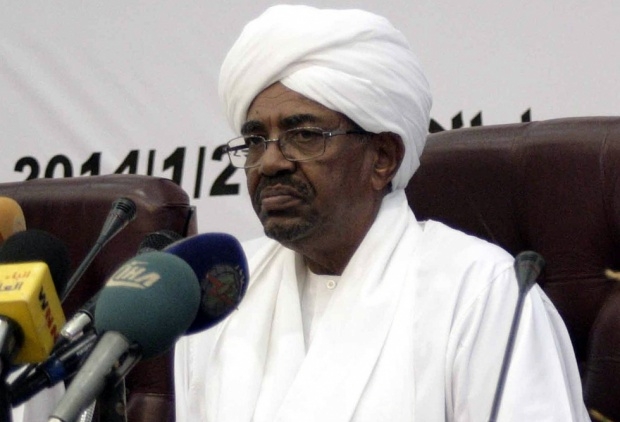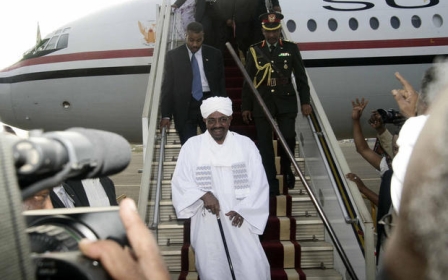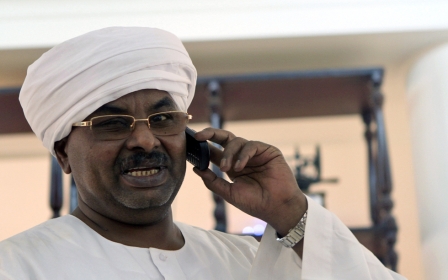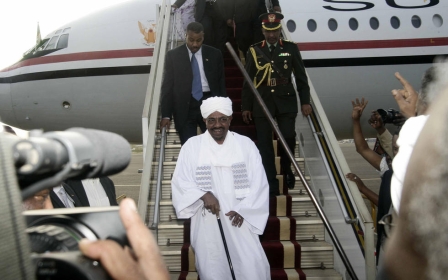Sudan’s economic crisis: Bashir dissolves government

President Omar al-Bashir dissolved the Sudanese government on Sunday, a move aimed at fixing a crisis-hit economy battered in recent months by shortages of bread, fuel and hard currency.
The announcement included a cut in the number of ministries to 21 from 31, a presidential statement said late on Sunday.
A ruling party official later said that Bashir, 74, had appointed Motazz Moussa as the country's new prime minister, Reuters reported. The official told reporters that the defence and interior ministers would remain in their posts in the new government.
Moussa was Sudan's irrigation and electricity minister before the cabinet's dissolution.
The government has been trying to slash expenditures as it grapples with record high inflation, the hard currency shortage and growing concern over low levels of liquidity at commercial banks.
Long queues outside banks have become a fixture around Khartoum in recent weeks as the liquidity of the local currency has dwindled and ATMs have been emptied of cash. Withdrawal limits in some places have been set as low as 500 Sudanese pounds ($28).
The statement said the measures were necessary to solve "the state of distress and frustration faced by the country during the last period".
Sudan’s economy has been struggling since South Sudan seceded in 2011, taking with it three-quarters of oil output and depriving Khartoum of a crucial source of foreign currency.
Pound devalued twice
The cost of food items and other products has more than doubled over the past year, while the foreign currency market has seen the Sudanese pound plunge against the US dollar, AFP reported.
As the economic situation worsened this year, the central bank has twice devalued the pound. The pound currently trades at 41 to the dollar on the black market, while the official rate is 28 to the dollar.
Sudan's economic crisis was highlighted for the first time in April when then foreign minister Ibrahim Ghandour announced in parliament that he had been unable to pay salaries to his staff for months amid a shortage of funds. He was immediately sacked.
Days after Bashir dismissed Ghandour, he announced a major cabinet reshuffle that saw the oil, interior, agriculture, youth and sports and justice ministers replaced. That reshuffle was also aimed at tackling the economic crisis.
Sudan's economic crisis has deepened despite the United States lifting in October its decades-old trade embargo imposed on the African country.
Expectations that the lifting of sanctions would help revive Sudan's ailing economy have so far failed to materialise.
Although Washington lifted the embargo, it has still kept Sudan on its list of "state sponsors of terrorism," a factor that officials say keeps investors away from Sudan.
The World Bank and other global financial institutions have urged Sudan to adopt swift structural reforms to revive its ailing economy.
Sudan's average gross domestic product growth between 1998 and 2008 exceeded six percent, after which it has steadily declined. Previous efforts at economic reform have proven controversial.
An attempt in September 2013 to cut fuel subsidies led to bloody confrontations between anti-austerity protesters and security forces that left dozens dead in Khartoum.
In January, Sudan again witnessed sporadic anti-government protests after a sharp increase in food prices.
Sudan has been without a central bank governor since June, when Hazem Abdelqader died after suffering a heart attack while on a trip to Turkey.
Last month, Sudan's ruling party said it had chosen Bashir to run for a third elected term in 2020, despite the constitution only allowing two five-year terms.
The veteran leader, who is wanted by the International Criminal Court on charges of genocide, faced his first multi-party election in 2010, after a new constitution came into effect, and won comfortably that year.
In 2015, he took 94 percent of the vote amid opposition boycotts, and later said he would not run for a third term.
Both the constitution and his party's charter permit a maximum of two presidential terms, so both texts will have to be amended if Bashir stands again.
Middle East Eye propose une couverture et une analyse indépendantes et incomparables du Moyen-Orient, de l’Afrique du Nord et d’autres régions du monde. Pour en savoir plus sur la reprise de ce contenu et les frais qui s’appliquent, veuillez remplir ce formulaire [en anglais]. Pour en savoir plus sur MEE, cliquez ici [en anglais].




